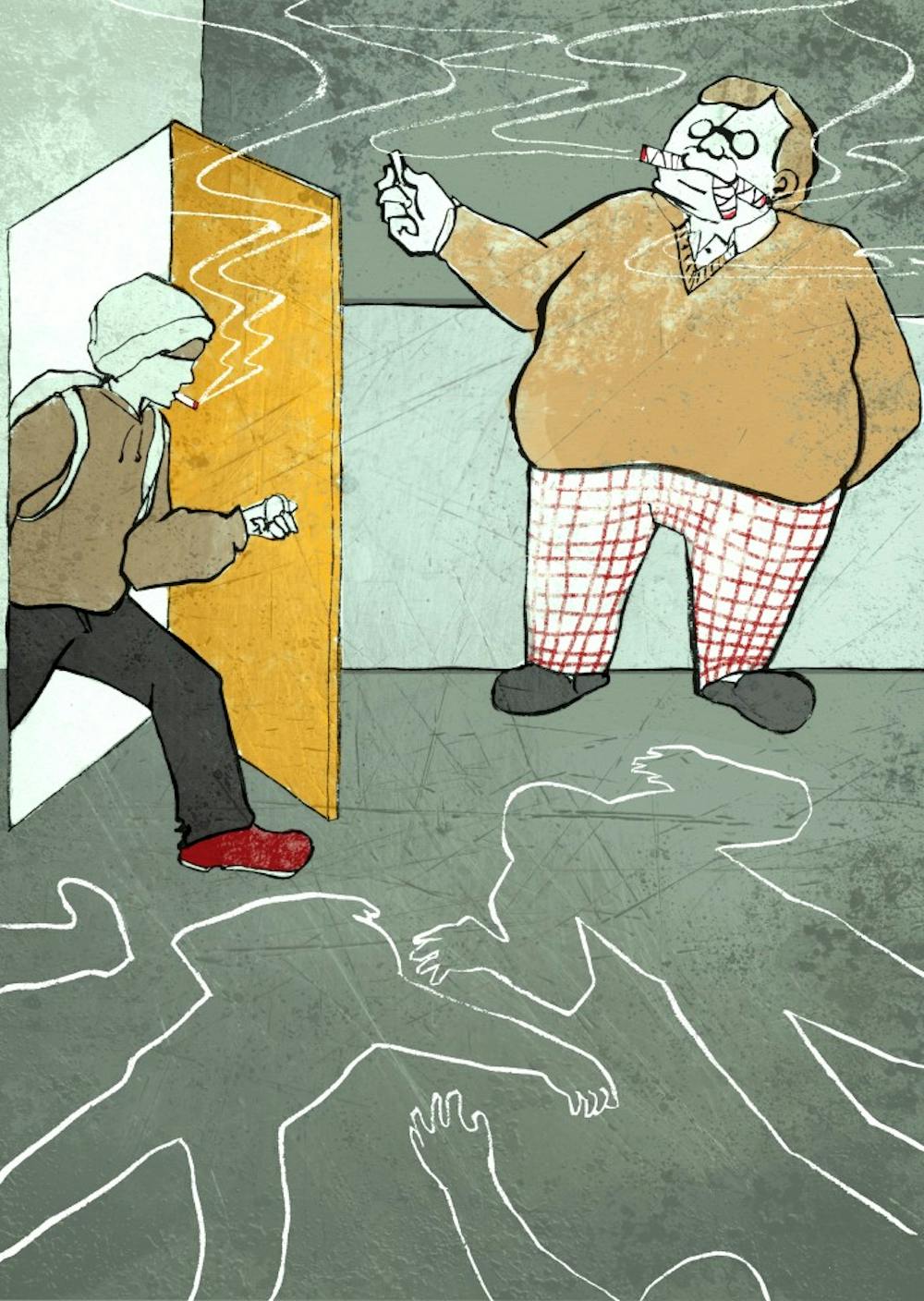The sight of students brazenly smoking on campus, breathing smoke clouds directly in front of the many “No smoking” signs that dot UB’s facilities, is an ironic but not uncommon sight.
More than that, it’s a scene that demonstrates the current ineffectiveness of UB’s prohibition of smoking on campus.
The policy is backed by good intentions, but little else – it’s a rule without any real repercussions, and certainly no respect of the students.
That’s why we support the Student Association Assembly’s move to create a task force to look into the unenforceable policy. Regardless of where you sit on the issue – that smokers should be free to smoke on campus or the policy should come with repercussions for those who don’t abide – a taskforce is at least a step toward something more functional.
Though the health risks of smoking and the irritation of secondhand smoke are generally accepted, little else offers easy agreement. When it comes to UB’s current no-smoking policy, UBreathe Free, which bans smoking on all UB-managed property, both its legality and its feasibility come into question.
SUNY encourages its 64 campuses to be smoke-free and provides funding for them to do so. There was legislation introduced in 2012 to make it illegal to smoke on SUNY campuses, but it died in committee.
This imposition of a complete ban on the practice does seem harsh to some because, given the size of the campuses, smokers have to travel quite a distance to smoke off property.
When it’s that challenging to follow the rules, it’s far less likely the rules are going to be respected.
But to those who vehemently oppose the habit of smoking, it may seem fair that smokers are inconvenienced. Although smoking is legal, it can also be argued smokers have no specific rights either and UB is completely justified in prohibiting smoking.
Here lies the conundrum.
It matters little, however, if UB’s ban is fair or not when that ban is simply not enforced. It essentially doesn’t exist. As seen by the minimal effect it’s had on the presence – and odor – of cigarette smoke floating in the air along the Spine.
UB cannot reprimand its employees for smoking unless it’s written into the various union contracts. The university has decided not to punish students if cannot do the same to the faculty and staff – which is the fair and logical choice. But that stance has also led to the current issue of a smoke-free policy that does little to stop smoking.
A complete ban with repercussions sounds like a good idea – it’s simple, assertive and for non-smokers who are bothered by secondhand smoke, the ideal solution. But ideology aside, a ban in name only does nothing to improve the situation, so UB should swallow its pride and compromise.
Enforcing an absolute ban seems like a waste of resources and energy, and although it could contribute to a healthier, more beautified atmosphere, it’s not worth the hostility and close policing that would be required for effective enforcement of such a strict – although justified – rule.
Instead, UB should modify its policy to meet in the middle – create a rule that satisfies non-smokers’ desire for a smoke-free environment that doesn’t insult smokers by offering no feasible way to follow the rule.
Designated smoking areas would be an ideal compromise for this campus.
Although it is impossible to contain tobacco smoke, if it was contained to a handful of areas that are easily accessible for smokers but also easy for non-smokers to avoid, then their experience on campus would be essentially smoke-free and certainly more so than it is currently.
This stance would also return cigarette butt containers to campus, which have been absent since the smoke-free policy went into affect. While it’s understandable the university does not want to send a mixed message by providing butt containers on a smoke-free campus, this had led to a further littering of butts, which can be harmful to the environment.
Smokers would experience mild inconvenience with designated smoking spots that may not be close to them – but it’s still a lesser one than an enforced absolute ban would cause. Seeing that UB was willing to offer some resource to meet smokers’ needs would make smokers more amenable to following the policy.
In this case, principles simply can’t compare to practicality – UB needs to show some flexibility to work on a solution that’s legal, feasible and acceptable to everyone.
The editorial board can be reached at editorial@ubspectrum.com





